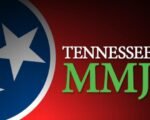In a strategic move to obstruct public health initiatives, tobacco industry lobbyists are leveraging the Windsor Framework to challenge the UK government’s proposals for a generational smoking ban. By emphasizing Northern Ireland’s adherence to EU regulations, these lobbyists aim to prevent the implementation of the ban in the region, highlighting the complexities introduced by post-Brexit regulatory agreements.
Understanding the Windsor Framework
The Windsor Framework is a post-Brexit agreement designed to manage the regulatory alignment between Northern Ireland and the European Union. It ensures that Northern Ireland remains aligned with certain EU regulations to maintain a seamless border with the Republic of Ireland. This framework plays a pivotal role in how UK-wide legislation, including public health measures, is applied in Northern Ireland.
The Role of TPD2
A key component of the tobacco industry’s strategy is the Tobacco Products Directive 2 (TPD2), an EU regulation that governs the sale and marketing of tobacco products. Tobacco firm JTI UK has argued that the proposed generational smoking ban in Northern Ireland would be “incompatible” with TPD2, making it subject to disapplication under the Windsor Framework. This assertion forms the backbone of their legal challenge against the ban.

Government’s Unified Stance
Despite the regulatory challenges posed by the Windsor Framework, the UK government maintains a firm commitment to implementing the generational smoking ban across the entire country. Governor Andy Beshear and other officials have emphasized that the ban is part of a broader public health strategy developed in collaboration with the Scottish Government, the Welsh Government, and the Northern Ireland Executive.
Official Statements
San Diego City Attorney Mara Elliott stated, “These operators clearly did not get the message last year after we filed our first round of lawsuits.” Similarly, a Stormont health department spokesperson clarified, “Consideration of Windsor Framework implications is a matter for the UK Government, as it pertains to a Westminster Bill.” These statements underscore the government’s intention to enforce the ban uniformly, despite the tobacco industry’s attempts to exploit regulatory loopholes.
Challenges Posed by the Tobacco Industry
Cross-Border Sales Concerns
One significant hurdle in enforcing the smoking ban in Northern Ireland is the potential for cross-border sales from the Republic of Ireland and other EU countries like Denmark. The availability of cigarettes across these borders complicates the practical enforcement of the ban, as adults in Northern Ireland could still access tobacco products from neighboring regions.
Legal and Regulatory Obstacles
The tobacco industry’s reliance on the Windsor Framework and TPD2 highlights the intricate legal landscape that can impede public health measures. By asserting that the ban conflicts with existing EU regulations, the industry seeks to delay or dilute the implementation of the smoking ban, thereby maintaining their market presence.
Impact on Public Health Initiatives
Health Benefits of the Smoking Ban
Implementing a generational smoking ban is expected to yield significant public health benefits, including reduced smoking rates, decreased incidence of smoking-related diseases, and overall improvement in population health. The ban aims to create a smoke-free environment for future generations, mitigating the long-term health impacts associated with tobacco use.
Delayed Progress
The tobacco industry’s legal challenges could delay the progress of these health initiatives, prolonging the adverse health effects of smoking in the population. The uncertainty surrounding the ban’s implementation may also hinder public confidence in the government’s commitment to reducing tobacco use.
Future Prospects and Potential Outcomes
Legislative Path Forward
The UK government is likely to pursue all available legal avenues to enforce the generational smoking ban, despite the tobacco industry’s challenges. This may involve additional legislative measures, negotiations, and court proceedings to ensure the ban’s applicability across all regions, including Northern Ireland.
Potential Legal Proceedings
Should the tobacco industry’s claims hold legal merit, it could result in injunctions or modifications to the proposed smoking ban, particularly in Northern Ireland. However, the government’s commitment to public health suggests they will seek to overcome these challenges through legislative and legal channels.
Long-Term Implications
The outcome of this regulatory tug-of-war will have profound implications for tobacco control measures and public health in the UK. A successful implementation of the smoking ban would set a precedent for future public health initiatives, while a delayed or weakened ban could embolden other industries to exploit regulatory frameworks.
The tobacco industry’s use of the Windsor Framework to challenge the UK government’s generational smoking ban highlights the ongoing struggle between public health objectives and industry interests. By emphasizing regulatory conflicts in Northern Ireland, tobacco lobbyists aim to undermine efforts to create a smoke-free future for the next generation. The UK’s ability to navigate these legal and regulatory challenges will be crucial in determining the success of its public health initiatives and the overall trajectory of tobacco control measures in the country.
Maria Garcia is an award-winning author who excels in creating engaging cannabis-centric articles that captivate audiences. Her versatile writing style allows her to cover a wide range of topics within the cannabis space, from advocacy and social justice to product reviews and lifestyle features. Maria’s dedication to promoting education and awareness about cannabis shines through in her thoughtfully curated content that resonates with both seasoned enthusiasts and newcomers alike.








